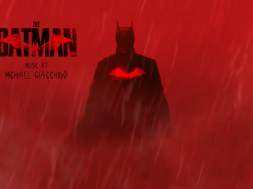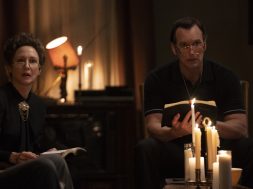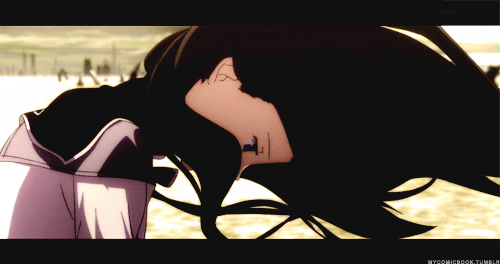
HIGH SCORE: PUELLA MAGI MADOKA MAGICA

When I first pitched the idea of High Score as a series here on The Arcade, I had already picked out a couple of scores that were definitely going to feature. Chrono Cross was one. Flower was another. I will admit though that I have allowed myself to get distracted from my initial list recently, so I think it’s about time I returned to it. This week we’re going to take a look at a score that was on my list from the very beginning and what is undoubtedly one of the best – if not the best – anime scores of the last decade; Yuki Kajiura’s incredible, eclectic work on Puella Magi Madoka Magica.
Madoka Magica is, as has been written on this very site, tremendously special. It’s one of those pieces of art that means so much to so many that writing about it resigns you to disappointing at least half of them. Whether you saw it as an allegory for feminism, the loss of innocence, the journey from childhood to adulthood, religion, all of the above and more or none at all, there’s no denying that it is one of the most interesting, multifaceted shows to come out of Japan in recent memory. Scoring such an ambitious project was never going to be easy, but as we’ll discuss today, Yuki Kajiura delivered a score that mirrored and amplified all of the show’s best qualities.
WARNING: There may very well be spoilers ahead. Continue at your own risk.
Confession time; I was late to the Madoka Magica party. I didn’t actually discover the series until the summer of 2012 when I bought the entire series on blu-ray in an impromptu anime binge. I had never seen it and knew nothing about it going in. From the box art I was expecting a playful magical girl romp á la Cardcaptor Sakura, needless to say, this is not what I got and the first tip off was this beautiful, tragic, tribal-inspired piece that played over the main menu. Traditional acoustic guitars pluck their way along an ambient percussive backdrop while haunting vocals carry the piece with an equally haunting melody. While it might sound like a pretty standard down-tempo fantasy number, the instrumentation here is deceptively intricate. The guitars are filled out by subtle but integral piano lines and even if you don’t pick it out on your first listen, you would definitely miss the countermelody that appears in the cello when the flute takes the reigns at 1.30. Suggestive and sorrowful, the tone is set for what’s to come.
It’s not all doom and gloom though, not immediately anyway as Madoka Magica does a lot to keep its cards close to its chest in the first three episodes. The appearance of Magical Girl, and steadfast fan favorite, Mami Tomoe, is heralded with this driving , triumphant refrain. The choir is nothing short of angelic and the melody drags listfully in contrast to the steady pulse pushing the piece along. Crunchy guitar and playful flutes fill out the soundscape and all of it combines to create a track that’s inspiring, exciting, surprising and optimistic, but inexplicably fragile at the same time. It’s no coincidence that Mami herself shares those traits. As a piece of music, Credens Justitiam is gorgeous. As a character theme, introducing Mami and foreshadowing – or lying about – what’s to come, it’s breathtaking.
For all the magnificent spectacle that Madoka Magica throws at you, and it really does, there’s an awful lot of heart be found in its quieter moments. This goes for its score too, which occasionally takes a breather from all the drama to deliver sparse, soft-spoken musical soliloquies such as this one, Scaena Felix. A lonely solo guitar is joined by an ethereal, echoing piano, imitating its every move with delicate, uncertain but unwavering loyalty. In fact, the relationship between the instruments in Scaena Felix is eerily reminiscent of the relationships between certain characters in the show. While most composers would pat themselves on the back for using specific instruments to denote specific characters or themes, Kajiura uses, not just her instrumentation, but the space between the instruments as a storytelling tool and a rather effective one at that.
Here’s where things start to get really interesting. One of the most fascinating aspects of Kajiura’s score is just how relentlessly eclectic it all is. She weaves orchestral threads in and out of pulsing, electronic samples and somehow manages to find room for traditional, tribal rhythms all at the same time. In Pugna Infinita, electronicia inspired samples thump quietly beneath a veil of mournful cello’s while more electronic drum samples hammer out an exotic, whispered rhythm. The result is hypnotic.
Just in case you were starting to wonder if Kajiura actually had the orchestral chops to pull off a full, filmic number, here’s Nux Walpurgis. This piece begins with a veritable explosion of aggressive string arpeggios, ominous, plodding percussion and a choral call to arms before tapering off into cloudy, romantic chordal movements. Horns, strings and choir come together throughout in morose, majestic melodies but never even attempt a return to the bombast of their opening motif, instead choosing to accept defeat and mourn together until, in their final moments, they gracefully resolve.
Time for another confession; I, like many, sobbed my way through the finale of Madoka Magica. Listening to this piece, which plays over the last episode’s most emotionally crippling moments, while writing this article lead to an unfortunate amount of jaw quivering as I attempted to fight off the feels that practically pour out of Pergo Pugnare. An incredibly evocative, emotive piece of scoring and a beautiful, and perfect, way to end the show. For those of you who’ve seen Madoka and have managed to somehow keep the tears back while listening to this, allow me to inform you that Pergo Pugnare translates as ‘I’ll continue to fight’. Don’t fight it. Let it happen. Cry with me. Cry with all of us.
Puella Magi Madoka Magica looks like it has secured its rightful place in the pantheon of truly great anime alongside the likes of Evangelion and Spirited Away. It has, unsurprisingly, resonated with waves of people all over the world and I would be positively astounded if any of them tried to claim that Yuki Kajiura’s score had nothing to do with that. Not only does her work tick all the necessary melodic and emotional boxes, it’s also fascinating on a technical and narrative level of its own. Next time you re-watch Madoka, listen out for her wonderful intricacies.
And try not to cry.











